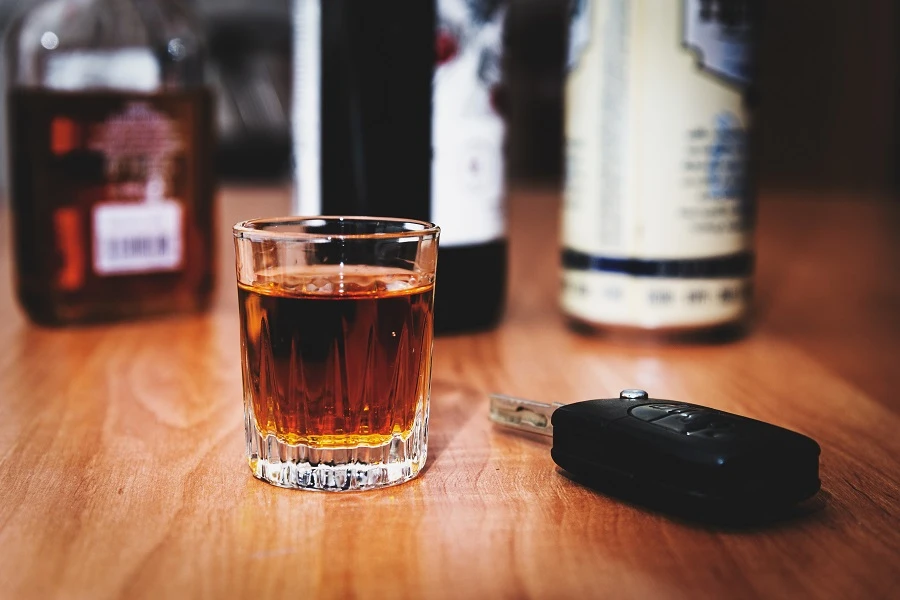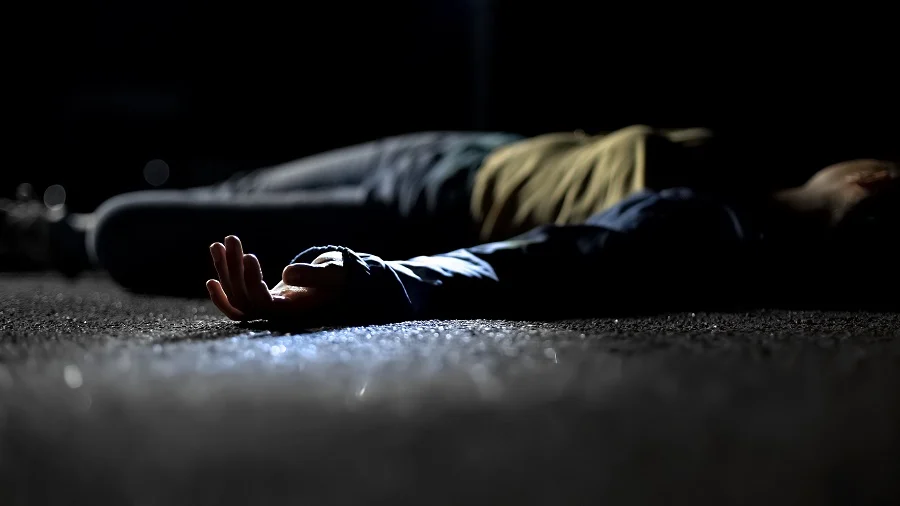What Is Intoxication Manslaughter in Texas?
Under Texas Penal Code § 49.08, intoxication manslaughter occurs when:
- A person operates a motor vehicle while intoxicated.
- They cause an accident that results in a fatality.
- The death was a direct result of intoxication.
Unlike other manslaughter charges, the prosecution does not need to prove intent — just that intoxication played a role in the crash.
Penalties for Intoxication Manslaughter in Texas

Intoxication manslaughter is a second-degree felony, punishable by a prison sentence of 2 to 20 years and fines of up to $10,000. The severity of the punishment depends on the circumstances of the case.
In most cases, the court will also impose a driver’s license suspension of up to 2 years, making it difficult to regain driving privileges even after serving time.
Prison Times for Intoxication Manslaughter
In standard cases, a conviction typically results in a sentence within the lower to mid-range of the 2–20 year window. For example, if the defendant has no prior DWI convictions and no aggravating factors, the court may lean toward a lighter sentence in the 5–10 year range.
The judge may consider a less severe punishment if the accident was relatively unavoidable and not caused by reckless driving behaviors like excessive speeding or racing. A defendant who takes responsibility, cooperates with law enforcement, and voluntarily seeks alcohol treatment may receive a lower sentence as part of plea negotiations.
However, certain aggravating factors can push the punishment toward the upper end of the sentencing range or even enhance the charge.
If the accident involved gross negligence, reckless driving, or an extremely high blood alcohol concentration (BAC), the court may impose a longer prison term to reflect the danger posed to the public. Defendants with prior DWI convictions are also more likely to receive a lengthy sentence, as the court considers them repeat offenders who failed to correct past behavior.
In cases where the victim was a first responder, such as a police officer, firefighter, or paramedic, Texas law enhances the charge to a first-degree felony, which carries a sentence of 5 to 99 years or life in prison. Similarly, if there were multiple fatalities, prosecutors may file separate intoxication manslaughter charges for each death, significantly increasing potential prison time.
Other Consequences
If convicted, the court may also impose additional penalties such as mandatory alcohol treatment programs, community service, and the installation of an ignition interlock device (IID). Given the high stakes, securing legal representation as soon as possible is critical to fighting these charges and exploring all possible defense strategies.
Unlike other manslaughter charges, intoxication manslaughter does not require the prosecution to prove intent — only that intoxication directly contributed to the fatality. This makes defending against these charges particularly challenging, as the prosecution will often rely on blood alcohol content (BAC) results, field sobriety tests, and officer testimony.
Can an Intoxication Manslaughter Charge Be Reduced?

Yes, in some cases, intoxication manslaughter charges can be reduced or dismissed. Our defense strategies focus on:
- Challenging BAC Test Results
Breath and blood tests are not always reliable due to equipment failure, improper handling, or medical conditions. - Questioning Police Procedures
If officers violated your rights, we can push for evidence suppression or case dismissal. - Disputing Causation
The prosecution must prove that intoxication — not other factors — caused the accident. - Negotiating Lesser Charges
In some cases, we can reduce charges to negligent homicide or DWI with injury instead of intoxication manslaughter.
Our goal is to minimize the impact of the charges and protect your future.
How We Fight Intoxication Manslaughter Charges
At Turnbull Legal Group, we use a comprehensive defense strategy to challenge the evidence, expose weaknesses in the prosecution’s case, and fight for the best possible outcome. Prosecutors aggressively pursue these cases, but they must prove beyond a reasonable doubt that intoxication directly caused the fatal accident. We may use the following techniques:
Challenging the Traffic Stop
Every intoxication manslaughter case begins with a traffic stop or accident investigation. We can file motions to suppress evidence if law enforcement lacked probable cause to stop you or violated your rights during the investigation. Any illegally obtained evidence can be thrown out.
Attacking Field Sobriety and Chemical Tests
Breathalyzers, blood tests, and field sobriety exercises are not infallible. Medical conditions, improper test administration, and faulty equipment can lead to false positives or inflated BAC readings.
Disputing the Cause of the Accident
The prosecution must prove that intoxication — not another factor — caused the crash. Road conditions, mechanical failures, the actions of other drivers, and unforeseen medical emergencies can all contribute to an accident.
Reviewing Police Reports and Witness Testimony
Law enforcement reports often contain assumptions and subjective observations. If officers lack proper training, make procedural mistakes, or exaggerate their claims, we challenge their credibility.
Negotiating for Charge Reductions
If dismissing the charges is not an option, we explore negotiating for a lesser offense. In some cases, intoxication manslaughter charges can be reduced to criminally negligent homicide, which carries a lighter sentence and may allow for probation.
Preparing for Trial When Necessary
While some cases can be resolved through negotiation, we are always ready for trial. If the prosecution refuses to offer a fair deal, we present a strong defense before a jury, using expert testimony, forensic analysis, and aggressive cross-examination to challenge the state’s claims.
Our Approach to Intoxication Manslaughter Defense
Defending against intoxication manslaughter requires a meticulous legal strategy. At Turnbull Legal Group, we use our experience in felony DWI cases to protect our clients’ rights and futures.
Initial Consultation
We provide a comprehensive case evaluation, helping you understand the charges, potential defenses, and legal strategies available to fight for a favorable outcome.
Thorough Investigation
We conduct an in-depth investigation, examining police reports, BAC test results, dashcam and bodycam footage, accident reconstruction reports, and medical evidence to find inconsistencies or violations of legal procedures.
Strategic Negotiations
We may pursue charge reductions or alternative sentencing options depending on the case details. In some instances, intoxication manslaughter charges can be reduced to lesser offenses like criminally negligent homicide, which carries lighter penalties.
Trial Readiness
If a trial becomes necessary, we are prepared to aggressively challenge the prosecution’s evidence, dispute causation, and cross-examine witnesses to expose weaknesses in the state’s case. Our goal is to fight for a dismissal, acquittal, or the most favorable sentencing outcome possible.
Charged with Intoxication Manslaughter? Protect Your Future Now.
A felony conviction can result in years in prison, a permanent record, and lifelong consequences. Don’t wait — contact us today for a free consultation.






























